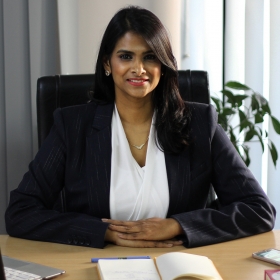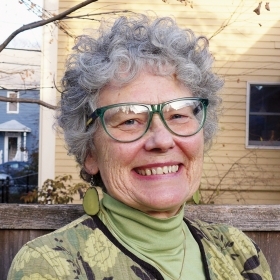Sylvana Sinha ’99
For 15 years, Sylvana Sinha ’99 has been “chasing impact” in her career in international development. The chase has taken the Virginia native and economics/philosophy major through a law degree at Columbia and a master’s...

For 15 years, Sylvana Sinha ’99 has been “chasing impact” in her career in international development. The chase has taken the Virginia native and economics/philosophy major through a law degree at Columbia and a master’s degree at Harvard, to New York, where she practiced international law and served as a foreign-policy advisor to Obama during his 2007–08 campaign. From there, it took her to Afghanistan, the Middle East, and South Asia, where she worked for the World Bank and other UN agencies on governance and legal reform. But now, that journey has landed her in her parents’ native country, Bangladesh, which they left, ironically, in search of better opportunities in life. Sylvana has founded a company there that aims to bring U.S.-quality health care to the country of 169 million, particularly to the country’s burgeoning middle class, who have been paying high prices for poor care.
The inspiration for Sylvana’s endeavor came from her family’s own nightmarish experiences with the local health care system in Bangladesh. Six years ago, her mother nearly died from a basic appendix surgery gone wrong—“and she had access to the best health care in the area!” explains Sylvana. The family had to airlift her to Bangkok for immediate operation and, again, for a follow-up surgery a year later. “Thank God my family had the means to access this, but there are lots of people in the country for whom that would have been if not impossible, then financially devastating,” she says. And she has dozens more stories like these within her own extended family, including an alarming mammogram mix-up, in which her aunt’s and her cousin’s test results were swapped. One of them was diagnosed with cancer.
Based in Bangladesh, Sylvana’s company, Praava Health, plans to open a network of more than 30 internationally accredited outpatient health centers there over the next decade. Right now, there are only two internationally accredited facilities in the entire country. The first facility will open in Dhaka this spring and will be a one-stop shop for medical care. It will host family doctors, a gynecologist, a pediatrician, a physical therapist, and a nutritionist, as well as a pathology lab, which will include the first molecular cancer diagnostic lab in the country.
This is a profound shift in the local culture, where most patients’ first point of contact is with a high-priced specialist. “Right now, specialists are overworked. Some of them are seeing 100, maybe even 200 patients a day,” says Sylvana. “It’s crazy. They are spending maybe 60 seconds or two minutes with each patient. Our doctors will actually spend time with a patient, get to know them, and engage with them in managing their health. When patients are engaged in managing their own health, they get better clinical outcomes.”
Sylvana sees the potential for her business—and its impact—as huge. “My interest in development was always inspired by my connection to Bangladesh, to visiting as a child.” Though roughly the size of Iowa, the country is home to a population that is half as large as that of the United States. “It’s an interesting moment in Bangladesh’s history. The economy is growing really quickly”—about 6 percent per year for the last 20 years—“and there are big needs in a lot of different sectors. And health is one area where you can have a really big impact.”


